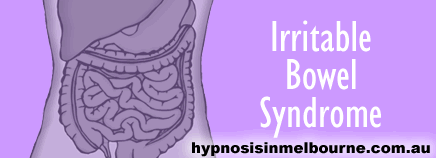Hypnotherapy Treats Irritable Bowel Syndrome
Irritable bowel syndrome (IBS) is a disorder involving the intestines. Symptoms can be mild to severe and include abdominal cramping, diarrhea, constipation, bloating, and gas. Many people who have IBS are often embarrassed by their symptoms and are uncomfortable talking about it with a doctor. Fortunately there are alternative methods, such as hypnosis, that can be used to help ease the symptoms and treat irritable bowel syndrome.
According to the Mayo Clinic, one in five American adults has IBS. Severe cases of IBS can be disabling and many people do not respond well to traditional methods of treatment. Many people have reported benefits from learning to change their lifestyle such as their eating habits and incorporating exercise. Proper stress management is also an important ability to have in order to keep symptoms of IBS at bay.
Many studies have been conducted to test the benefits of hypnotherapy on patients suffering from IBS. Whorwell (2000) researched the effect of hypnotherapy on IBS patients. The study involved 30 participants with severe cases of IBS. Participants were randomly allocated into two groups. One group received hypnotherapy treatments, while the other group received placebo medication and supportive therapy. The participants were evaluated three months after treatment. All of the patients in the hypnosis group reported significant improvement. However, only two participants in the control group reported any improvement. The study continued to evaluate the hypnosis group and measured their gastrointestinal motility for 18 months after treatment. The researcher concluded that people with IBS who are treated with hypnosis have the ability to improve gastrointestinal motility, thus seeing improvement in their symptoms.
Houghton, Heyman, and Whorwell (1996) studied the effect of hypnotherapy treatment on severe IBS cases and the economic impact and quality of life. The study involved 50 patients ranging in age from 21 to 58. All 50 participants were questioned about their IBS symptoms, quality of life, and employment. Twenty-five participants received hypnotherapy sessions to treat their IBS. The remaining 25 participants made up the control group and received no form of treatment.
Following treatment, the hypnotherapy group and the control group were evaluated. Results showed that those in the hypnosis group reported improvement with the following symptoms: pain, bloating, gas, nausea, lethargy, and urinary problems. Those in the hypnosis group also reported improved overall well-being, physical well-being, mood, and work attitude. During the study, 79% of the control group took time off from work due to their IBS, compared to 32% of the hypnotherapy group. Also, 58% of the control group visited their doctor during the study, whereas 21% of the hypnosis group visited their doctor. Four people in the hypnosis group were out of work prior to the study. After the study, three were able to go back to work. Comparatively, out of the six people in the control group who were not able to go to work, none were able to return back to work after the study.
This study shows that hypnotherapy is able not only to improve the symptoms of IBS, but also to improve the well-being of those who receive hypnosis. Hypnotherapy improves mood and enables IBS sufferers to miss less work. There is a huge potential economic impact of providing hypnotherapy for those suffering from IBS.



